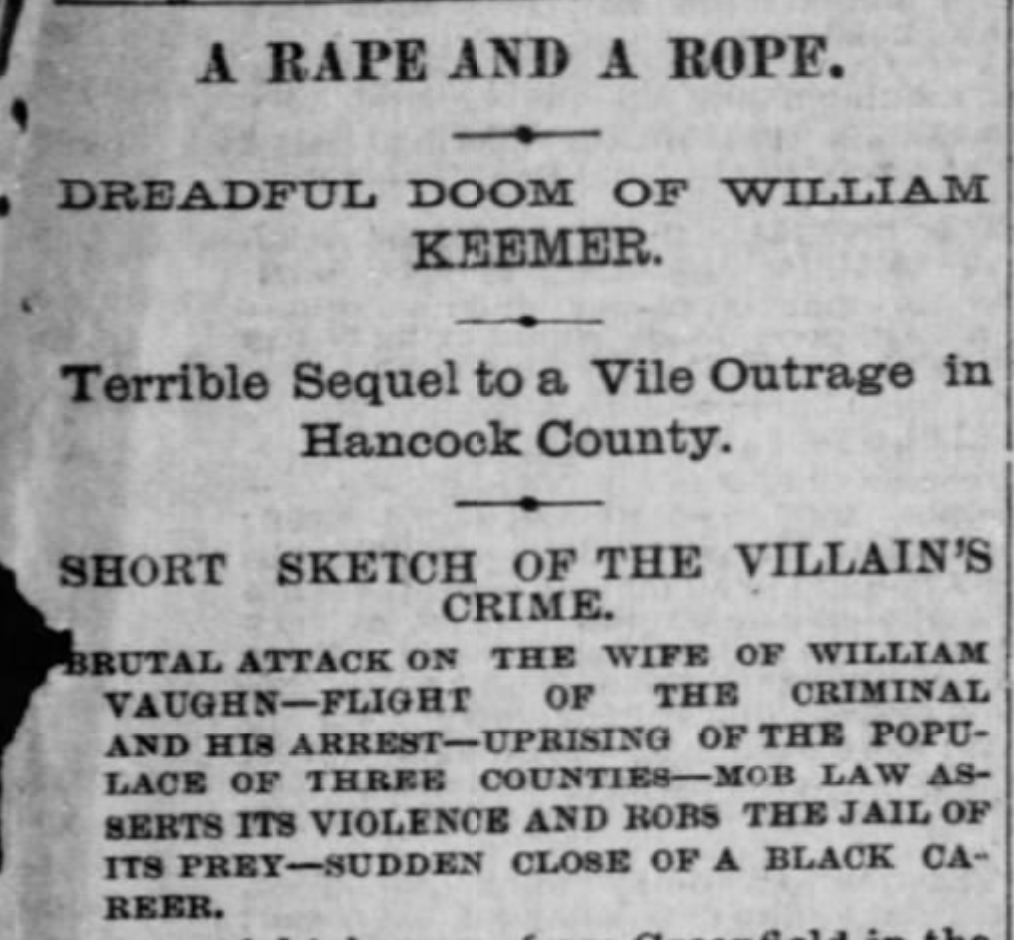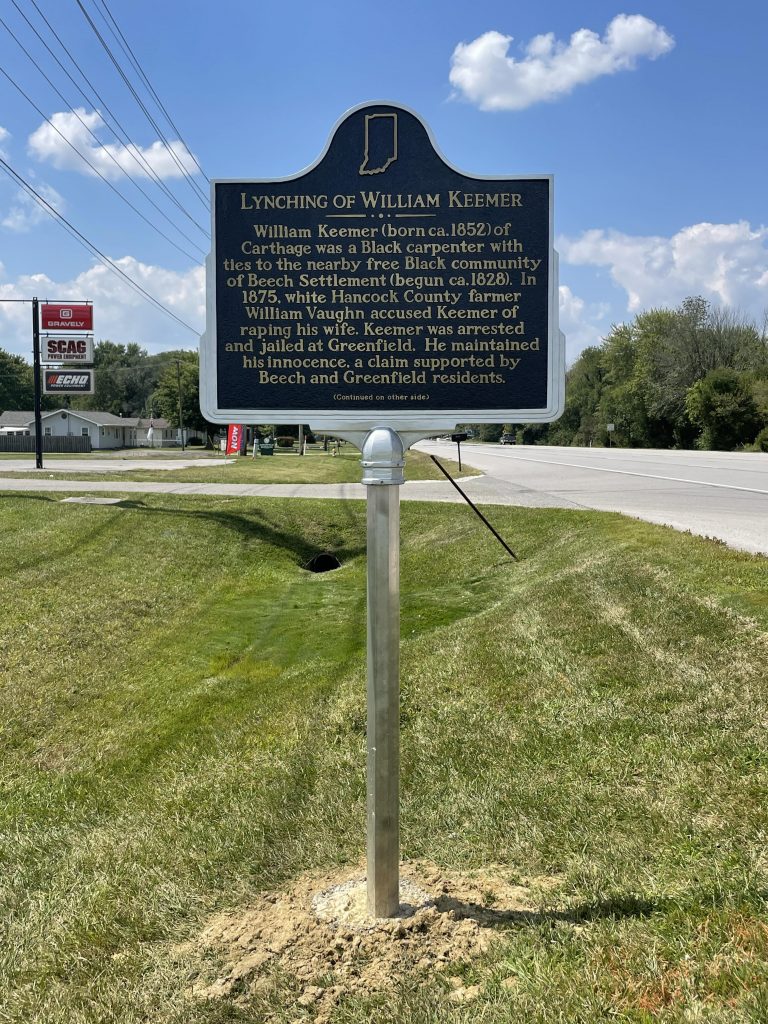William Keemer, the first Black man in Indiana lynched after the Civil War during Reconstruction, was born to James H. Keemer and Sarah Floods Riley Keemer in 1849. The elder Keemer served in the Civil War from 1865-1866. Keemer and his family were residents of the Beech Settlement, a Carthage, Indiana, community of free Blacks in Rush County. Free Blacks who came with Quakers from eastern North Carolina and Virginia settled in the area around 1828. Although Keemer lived in Beech Settlement, he worked as a carpenter for Charles S. Wiltsie, the .

On June 24, 1875, William Vaughn accused Keemer of raping his pregnant 23-year-old wife Jerusha (Lucetta) Vaughn in their home in Carthage. Vaughn allegedly had been working in his field when he heard screams emanating from his home. He claimed to have found Keemer raping his wife. Vaughn and area residents allegedly chased and apprehended Keemer, taking him to the Rush County Jail where he was arrested for the alleged sexual assault. Keemer claimed he was walking to Indianapolis from Charlottesville and stopped at the Vaughns’ home to ask for a glass of water. An angry mob outside the Rush County Jail demanded Keemer’s death.
Vaughn alerted a friend at the and circuit court of the potential for mob violence. Vaughn suggested the judge issue a formal accusation against Keemer immediately. The presiding judge thought differently, noting he would hear the case during the next term. Until then, Keemer would sit in jail. To prevent violence, Keemer was transferred from the Rush County Jail to the Jail around 12:30 AM on June 25, 1875.

Later that day, at 10 PM, a mob of 160 white, masked men from three counties decided to take the law into their hands. The men voted on the method of Keemer’s death—by rope or by knife. According to news reports, 90 men voted for hanging, and 70 men voted to cut Keemer piece by piece. The mob arrived at the Hancock County Jail, where 20 masked men restrained Hancock County Sheriff William Thomas and his bailiff John Windsor. They forced their way into Keemer’s cell and took him to the Hancock County Fairgrounds. Keemer maintained his innocence, stating, “Men, you are doing a great wrong!” The masked men then conducted a spectacle lynching, hanging Keemer’s body from a structure at Floral Hall at the fairgrounds. The mob attached a note to his body stating, “It is the verdict of 160 men of Hancock, Shelby and Rush, that this life is inadequate to meet the demands of justice.” Keemer’s assailants were never identified.
Keemer’s body remained hanging until the morning of June 26, 1875. His body was taken to the local funeral parlor with the noose still around his neck. More than 1,000 people viewed his body before burial in an unmarked grave in a potter’s field.

Historians from Hancock County, with support from the Keemer Marker Community Coalition, spearheaded an effort to place a historical marker on Keemer’s burial site. In 2021, the Indiana Historical Bureau approved the marker. The dedication of the Lynching of William Keemer state historical marker took place in Greenfield, Indiana, on August 24, 2024.

Help improve this entry
Contribute information, offer corrections, suggest images.
You can also recommend new entries related to this topic.